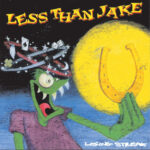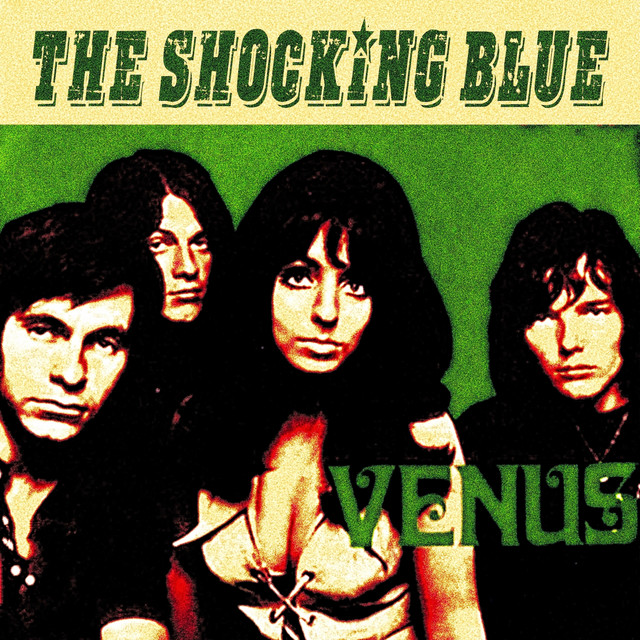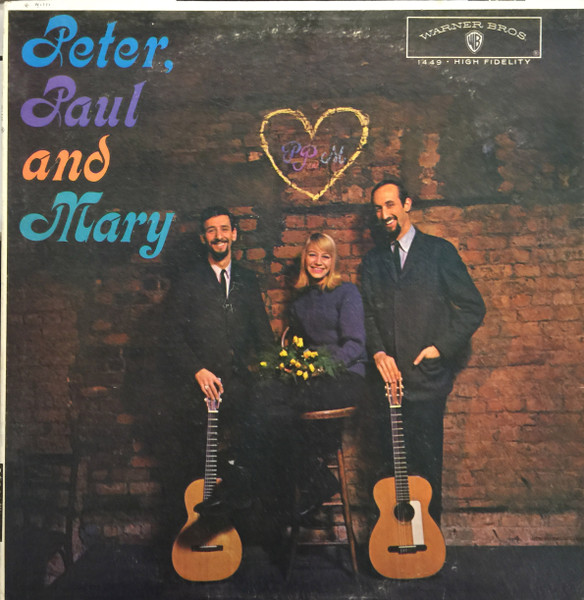 Energy, horns, and unapologetic attitude—that’s the DNA of Automatic by Less Than Jake, a track that distilled everything great about the 1990s ska-punk explosion into three furious minutes. Released in 1996 on the band’s breakthrough album Losing Streak, the song stands as one of the genre’s purest expressions of frustration and rebellion. But beyond the blaring brass and breakneck tempo, Automatic captures something deeper: the disillusionment of youth crushed beneath conformity, and the refusal to play along with a world that wants everyone to move in robotic rhythm.
Energy, horns, and unapologetic attitude—that’s the DNA of Automatic by Less Than Jake, a track that distilled everything great about the 1990s ska-punk explosion into three furious minutes. Released in 1996 on the band’s breakthrough album Losing Streak, the song stands as one of the genre’s purest expressions of frustration and rebellion. But beyond the blaring brass and breakneck tempo, Automatic captures something deeper: the disillusionment of youth crushed beneath conformity, and the refusal to play along with a world that wants everyone to move in robotic rhythm.
Less Than Jake, hailing from Gainesville, Florida, built their reputation on a high-octane blend of punk urgency and ska exuberance. They weren’t political in the traditional sense, but they were fierce advocates for individuality, humor, and heart. Automatic became a defining statement of that ethos—a manifesto for every kid who ever looked around and thought, there’s got to be more to life than this routine. It’s a song that sneers at the monotony of modern existence while dancing on its grave. The horns wail, the drums sprint, and the guitars slice through the air like a declaration of independence from everything fake and mechanical about the adult world.
From Gainesville to the Globe: The Rise of Less Than Jake
By 1996, ska-punk was exploding. Bands like Reel Big Fish, The Mighty Mighty Bosstones, and No Doubt were introducing the world to the genre’s third wave—a fusion of ska’s upbeat rhythms with punk’s snarling speed and cynicism. Less Than Jake, though, had been grinding for years before the mainstream took notice. They were the blue-collar band of the scene, recording in small studios, touring relentlessly, and living out of vans.
Their sound was loud, fast, and relentlessly positive—even when the lyrics weren’t. Frontman Chris DeMakes and bassist Roger Lima traded off vocals like two friends yelling over a party. Vinnie Fiorello’s lyrics hit hard with irony and anxiety, tackling everything from growing up to feeling stuck in small-town cycles.
Automatic, appearing early in the Losing Streak tracklist, became one of those songs that defined the band’s identity. It wasn’t just another ska song—it was a mission statement. The track bursts open with roaring guitars, then slides into the brass section’s call-and-response, a quintessential Less Than Jake move. By the time DeMakes belts out the first line—“It was an average day, the kind you’d wake up from a bad dream”—listeners already know they’re in for something urgent and relatable.
Breaking Down Automatic: Sound and Structure
Musically, Automatic is Less Than Jake firing on all cylinders. The tempo is blistering, true to the punk spirit, but it never loses the ska groove. The horn section—anchored by Buddy Schaub (trombone) and JR Wasilewski (saxophone)—injects bursts of melody and punctuation that lift the song above the wall of guitars. Every beat feels like motion, like running away from something you can’t quite escape.
The arrangement is tight and direct, clocking in at under three minutes, but it covers miles emotionally. The verses drive like a car stuck in traffic, tense and irritated, while the chorus explodes into freedom. There’s no wasted sound—just propulsion. The band had mastered the art of combining sing-along choruses with restless energy, making Automatic a crowd favorite from the moment it hit setlists.
The bridge, as is typical with Less Than Jake, drops just enough for a breath before kicking into overdrive again. You can practically feel the pit moving when they hit the final chorus live—the trumpets blaring, the crowd shouting every line like gospel.
The Lyrics: Rage Against Routine
At its core, Automatic is about suffocation—the feeling of living a scripted life, where every decision feels preordained by social expectation. Fiorello’s lyrics hit on the mundane routines that quietly crush people:
“It’s not the end of the world,
It’s just the end of the day.”
That line alone encapsulates the song’s brilliance. It’s small-scale apocalypse—a recognition that life’s tragedies often aren’t dramatic, but numbing. The song doesn’t rage against authority; it rages against apathy. The “automatic” of the title refers to a life lived without thought, emotion, or direction—a mechanical existence powered by habit rather than passion.
Other lines—“You live your life like a machine, forgetting to feel, forgetting to dream”—drive home the message. The lyrics avoid melodrama; instead, they speak with the kind of realism that resonates deeply. Everyone’s felt the drag of routine, the pressure to conform, the temptation to settle for less.
Less Than Jake’s genius lies in pairing those lyrics with music that’s anything but lifeless. It’s ironic, almost sarcastic: a song about numbness that overflows with sound and spirit. It’s their way of saying, we refuse to be like that.
Ska-Punk as a Vehicle for Emotion
The 1990s ska-punk boom wasn’t just about dancing and horns—it was a cultural moment that gave voice to suburban frustration. While earlier punk bands channeled rebellion through anger and nihilism, ska-punk injected joy into the mix. It was rebellion through fun, through community, through refusing to take life too seriously even when it felt unbearable.
Automatic is a perfect example. It’s not hopeless—it’s hopeful through catharsis. The very act of shouting along to the chorus is a kind of liberation. Less Than Jake’s music always thrived in that tension: joy and despair, humor and truth, cynicism and optimism.
Where some of their contemporaries focused on irony or party anthems, Less Than Jake had heart. Their songs weren’t just soundtracks for skanking—they were survival tools for people trying to stay human in a world that often felt mechanical.
Losing Streak: The Album That Changed Everything
When Losing Streak dropped in 1996 on Capitol Records, it was the band’s first major-label release and a defining moment for ska-punk as a genre. The album was recorded quickly and cheaply, but it captured lightning in a bottle. Automatic sat alongside other high-voltage tracks like Johnny Quest Thinks We’re Sellouts and Sugar in Your Gas Tank, each one delivering its own punch of emotion and satire.
Critics at the time praised the album’s rawness and sincerity. Unlike some ska bands that leaned too hard into novelty, Less Than Jake struck a balance between humor and honesty. Automatic became a focal point of that credibility—it wasn’t just catchy; it meant something.
The album’s title, Losing Streak, ties neatly into Automatic’s theme. Both speak to the feeling of losing control, of slipping into patterns, of wanting to break free. Yet, like all great punk records, it also carries an undercurrent of resilience. You lose, you streak, you fall—but you keep playing.
The Live Energy: Turning Alienation into Connection
Anyone who’s seen Less Than Jake live knows that Automatic isn’t just a song—it’s an experience. When the first horn riff hits, the crowd erupts. People don’t just sing along; they scream every word, because everyone has lived that feeling of suffocating in their own routine.
The band’s live performances have always been equal parts chaos and communion. DeMakes and Lima’s banter, Fiorello’s boundless energy, and the horn section’s acrobatics create a sense of joy that feels like rebellion in itself. When Automatic hits mid-set, it’s a release valve. The crowd becomes the chain gang breaking free from their own monotony, one skank step at a time.
Over the years, Automatic has remained a setlist staple precisely because of that connection. It doesn’t matter if the show is in a dingy club or a massive festival—when the band yells “Go!” and the horns blast, it’s pure catharsis.
Less Than Jake’s Philosophy: Finding Joy in the Grind
For Less Than Jake, Automatic isn’t just an anti-establishment rant—it’s a personal creed. They’ve built their entire career around avoiding the “automatic” path. While other bands from their era faded or fractured, they’ve kept moving, self-releasing records, running their own label, and staying close to their fans.
That DIY spirit mirrors the message of the song: refuse to let your life be dictated by external expectations. Whether that means skipping the corporate grind, staying true to your art, or simply keeping your sense of humor in dark times, Automatic urges listeners to live with intention.
It’s no accident that the song resonates across generations. In an age of screens, algorithms, and constant noise, it feels even more relevant. The “automatic” life is everywhere now—scrolling, posting, performing. Less Than Jake’s message from 1996 hits harder than ever: Wake up. Feel something. Don’t become part of the machine.
Influence and Legacy
While Automatic never became a radio hit in the mainstream sense, it became one of Less Than Jake’s defining tracks among fans and musicians alike. Countless ska-punk and pop-punk bands—like Streetlight Manifesto, The Interrupters, and even early Fall Out Boy—have cited Less Than Jake as an influence for their ability to blend humor, heart, and horns.
The song’s DNA can be felt in the work of modern ska acts that balance upbeat sound with introspective lyrics. It’s also a testament to the staying power of ska-punk itself, a genre that refuses to die because it speaks to something primal in people: the need to move, to feel, to belong.
For longtime fans, Automatic represents a time when the ska-punk movement was raw and unstoppable. For new listeners discovering it today, it feels like a lightning bolt from the past that still burns bright with truth.
Why Automatic Still Matters Today
Nearly thirty years after its release, Automatic feels eerily prescient. The world has only grown more mechanical—more automated, more algorithm-driven, more disconnected. The struggle to stay authentic in an artificial age has become the new rebellion.
Listening to Automatic now, you can hear the urgency of youth but also the timelessness of its message. It’s not just a nostalgic relic of the 1990s ska-punk boom; it’s an anthem for anyone trying to keep their humanity intact in a system designed to numb it. The song still makes you want to shout, dance, and punch the air—not out of anger, but defiance.
Less Than Jake’s brilliance lies in wrapping that existential struggle in a package that’s fun, fast, and fiercely alive. Automatic isn’t meant to wallow; it’s meant to shake you awake. It’s the musical equivalent of slamming your alarm clock and deciding today won’t be another automatic day.
Conclusion: The Song That Refuses to Sleepwalk
Automatic by Less Than Jake is more than just a ska-punk classic from 1996—it’s a reminder that life, at its best, is lived consciously, emotionally, and loudly. Beneath its horn blasts and rapid-fire energy lies one of the most important messages in rock: don’t become part of the system that drains your soul.
For Less Than Jake, the song marked their emergence as one of the defining voices of a movement, but it also transcends that era. It speaks to anyone who’s ever felt trapped by routine, by fear, by expectations—and found freedom in turning up the volume instead of turning off their dreams.
When the band shouts, “It’s not the end of the world, it’s just the end of the day,” they’re telling us exactly what punk has always said: failure isn’t fatal, boredom isn’t destiny, and even the grind can’t crush you if you refuse to go automatic.
So next time life feels mechanical, hit play, crank the volume, and let the horns of Automatic remind you—you’re still in control of your rhythm.


